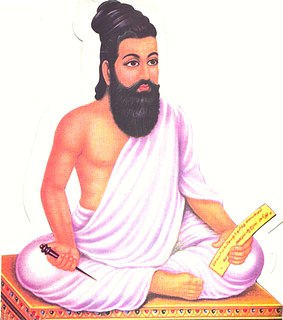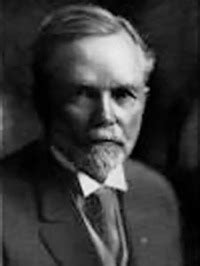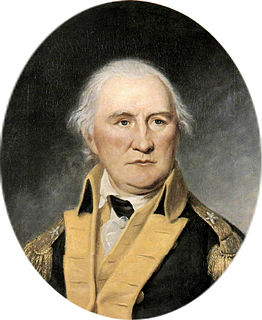A Quote by Thiruvalluvar
The quantity of a man's wealth will not last long if his generous nature is not balanced with the size of his property.
Related Quotes
In the latter sense, a man has a property in his opinions and the free communication of them. He has a property of peculiar value in his religious opinions, and in the profession and practice dictated by them. He has an equal property in the free use of his faculties and free choice of the objects on which to employ them. In a word, as a man is said to have a right to his property, he may be equally said to have a property in his rights.
It will probably surprise many who know nothing of Proudhon save his declaration that 'property is robbery' to learn that he was perhaps the most vigorous hater of Communism that ever lived on this planet. But the apparent inconsistency vanishes when you read his book and find that by property he means simply legally privileged wealth or the power of usury, and not at all the possession by the labourer of his products.
It is not the right of property which is protected, but the right to property. Property, per se, has no rights; but the individual - the man - has three great rights, equally sacred from arbitrary interference: the right to his life, the right to his liberty, the right to his property The three rights are so bound together as to be essentially one right. To give a man his life but to deny him his liberty, is to take from him all that makes his life worth living. To give him his liberty but take from him the property which is the fruit and badge of his liberty is to still leave him a slave.
If a man loses a dear friend, he looks around and sees many friends come to console and comfort him. If a man loses his wealth, after a little thought he will realize that the delight that came from wealth will be restored by finding more. Thus he forgets his loss and is consoled. But if a man's heart is deprived of peace, where will he find it again, how will he replace it?
I cannot but regard it as a kindness in those who have the steering of me that, by the want of pecuniary wealth, I have been nailed dawn to this my native region so long and steadily, and made to study and love this spot of earth more and more. What would signify in comparison a thin and diffused love and knowledge of the whole earth instead, got by wandering? The traveler's is but a barren and comfortless condition. Wealth will not buy a man a home in nature-house nor farm there. The man of business does not by his business earn a residence in nature, but is denaturalized rather.
Because the one who by excellency of nature transcends all quantity and size and magnitude...has now...contracted himself into a quantity and size and has acquired a physical identity, do not hesitate any longer to draw pictures and to set forth, for all to see, him who has chosen to let himself be seen.
When the rich plunder the poor of his rights, it becomes an example for the poor to plunder the rich of his property, for the rights of the one are as much property to him as wealth is property to the other, and the little all is as dear as the much. It is only by setting out on just principles that men are trained to be just to each other; and it will always be found, that when the rich protect the rights of the poor, the poor will protect the property of the rich. But the guarantee, to be effectual, must be parliamentarily reciprocal.
..every Man has a Property in his own Person. This no Body has any Right to but himself. The Labour of his Body, and the Work of his Hands, we may say, are properly his. .... The great and chief end therefore, of Mens uniting into Commonwealths, and putting themselves under Government, is the Preservation of their Property.






































